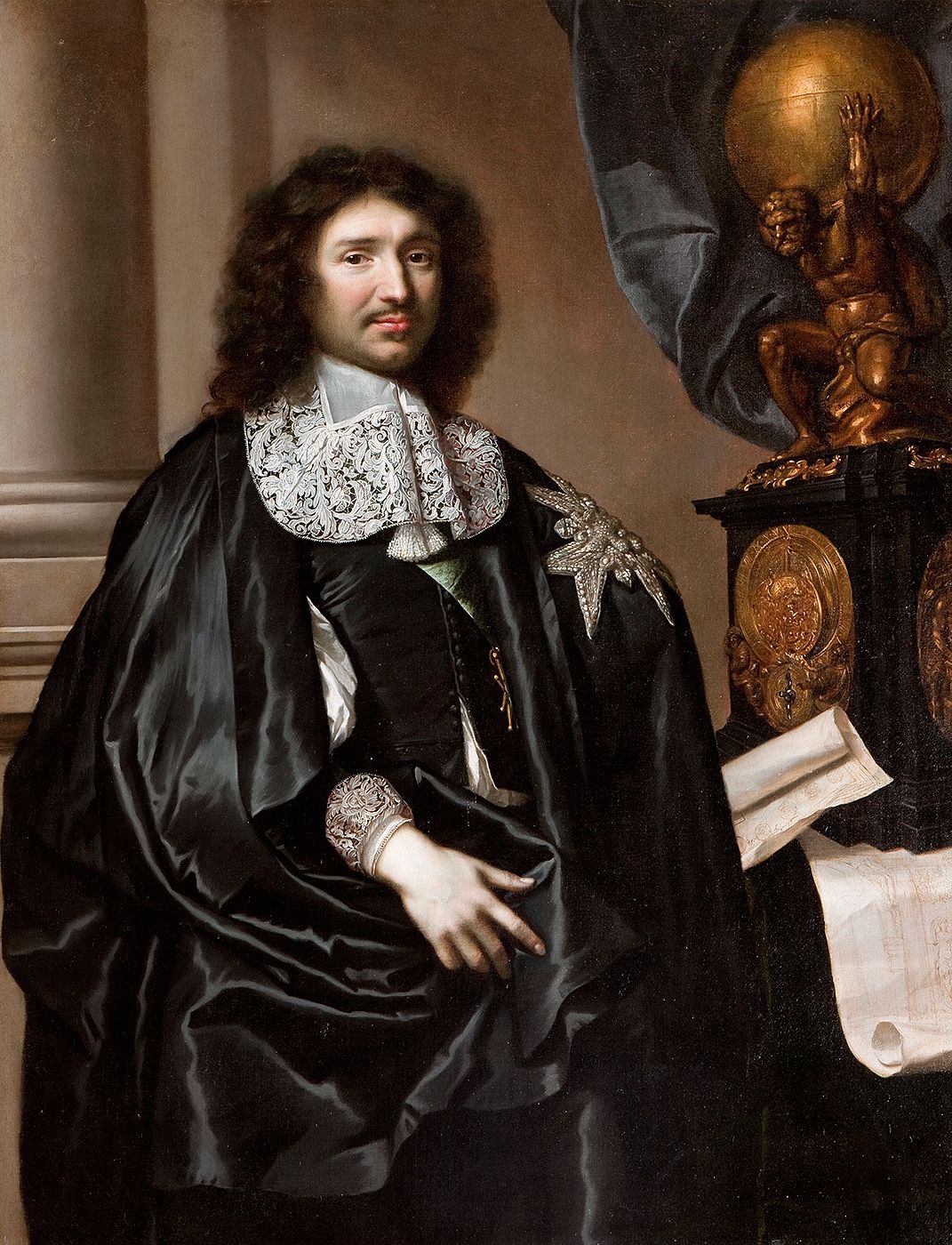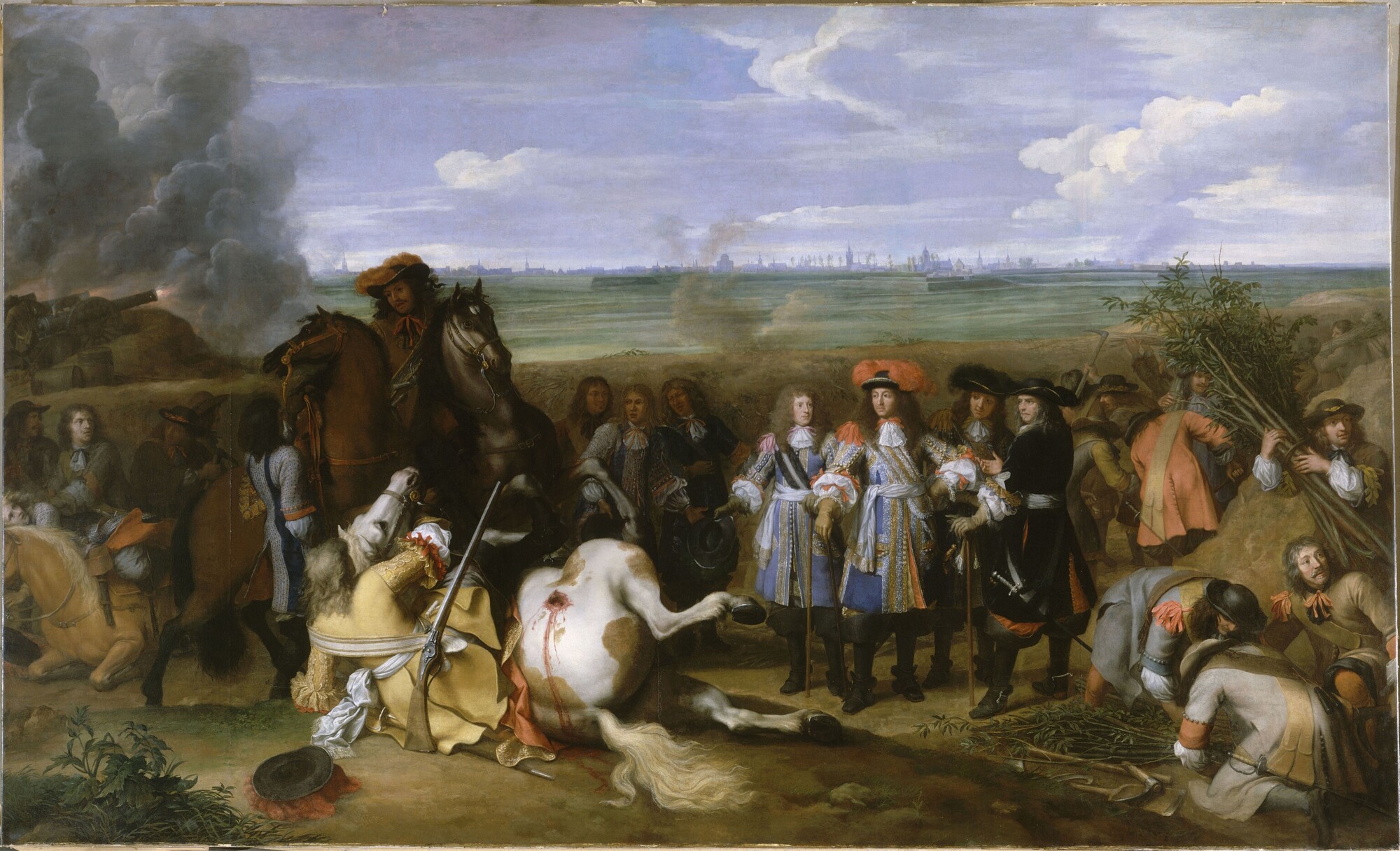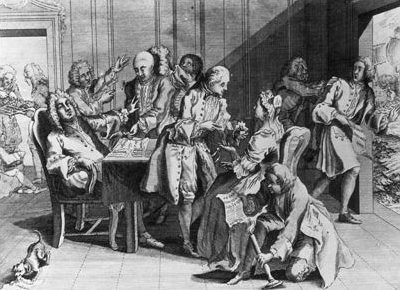|
Charles Joachim Colbert
Charles Joachim Colbert (11 June 1667 – 8 April 1738) was a bishop of Montpellier from 1697. He was a son of Charles Colbert, marquis de Croissy and a nephew of Jean-Baptiste Colbert. As an ardent Jansenist he had père François-Aimé Pouget edit the noted ''Catéchisme de Montpellier''. His writings were condemned by Rome. He was also part of the 'Appelant' movement alongside Jean Soanen, Pierre de La Broue and Pierre de Langle, calling for a church council to discuss the papal bull ''Unigenitus ''Unigenitus'' (named for its Latin opening words ''Unigenitus Dei Filius'', or "Only-begotten Son of God") is an apostolic constitution in the form of a papal bull promulgated by Pope Clement XI in 1713. It opened the final phase of the Janse ...''. References 1667 births 1738 deaths Bishops of Montpellier Colbert family {{Montpellier-stub ... [...More Info...] [...Related Items...] OR: [Wikipedia] [Google] [Baidu] |
Bishop Of Montpellier
The Metropolitan Archdiocese of Montpellier (–Lodève–Béziers–Agde–Saint-Pons-de-Thomières) (Latin: ''Archidioecesis Metropolitae Montis Pessulani (–Lotevensis–Biterrensis–Agathensis–Sancti Pontii Thomeriarum)''; French: ''Archidiocèse Metropolitain de Montpellier (–Lodève–Béziers–Agde–Saint-Pons-de-Thomières)'') is a Latin archdiocese of the Catholic Church in south-western France. The current metropolitan archbishop is Pierre-Marie Carré; the immediate past Archbishop Emeritus is Guy Marie Alexandre Thomazeau. On September 16, 2002, as part of the reshuffling of the map of the French ecclesiastical provinces, the diocese of Montpellier (Lodève, Béziers, Agde, and Saint-Pons-de-Thomières) ceased to be a suffragan of Avignon and was elevated to archdiocese and metropolitan of a new ecclesiastical province, with the dioceses of Carcassonne, Mende, Nimes (Uzès and Alès) and Perpignan–Elne as suffragans. History The diocese's original d ... [...More Info...] [...Related Items...] OR: [Wikipedia] [Google] [Baidu] |
Charles Colbert, Marquis De Croissy
Charles is a masculine given name predominantly found in English and French speaking countries. It is from the French form ''Charles'' of the Proto-Germanic name (in runic alphabet) or ''*karilaz'' (in Latin alphabet), whose meaning was "free man". The Old English descendant of this word was '' Ċearl'' or ''Ċeorl'', as the name of King Cearl of Mercia, that disappeared after the Norman conquest of England. The name was notably borne by Charlemagne (Charles the Great), and was at the time Latinized as ''Karolus'' (as in ''Vita Karoli Magni''), later also as '' Carolus''. Etymology The name's etymology is a Common Germanic noun ''*karilaz'' meaning "free man", which survives in English as churl (James (wikt:Appendix:Proto-Indo-European/ǵerh₂-">ĝer-, where the ĝ is a palatal consonant, meaning "to rub; to be old; grain." An old man has been worn away and is now grey with age. In some Slavic languages, the name ''Drago (given name), Drago'' (and variants: ''Drago ... [...More Info...] [...Related Items...] OR: [Wikipedia] [Google] [Baidu] |
Jean-Baptiste Colbert
Jean-Baptiste Colbert (; 29 August 1619 – 6 September 1683) was a French statesman who served as First Minister of State from 1661 until his death in 1683 under the rule of King Louis XIV. His lasting impact on the organization of the country's politics and markets, known as Colbertism, a doctrine often characterized as a variant of mercantilism, earned him the nickname ''le Grand Colbert'' (; "the Great Colbert"). A native of Reims, he was appointed Intendant of Finances on 4 May 1661. Colbert took over as Controller-General of Finances, a newly created position, in the aftermath of the arrest of Nicolas Fouquet for embezzlement, an event that led to the abolishment of the office of Superintendent of Finances. He worked to develop the domestic economy by raising tariffs and encouraging major public works projects, as well as to ensure that the French East India Company had access to foreign markets, so that they could always obtain coffee, cotton, dyewoods, fur, pepper, ... [...More Info...] [...Related Items...] OR: [Wikipedia] [Google] [Baidu] |
Jansenist
Jansenism was a 17th- and 18th-century theological movement within Roman Catholicism, primarily active in France, which arose as an attempt to reconcile the theological concepts of free will and divine grace in response to certain developments in the Catholic Church, but later developed political and philosophical aspects in opposition to royal absolutism. It was based on the ideas of Cornelius Jansen, (1585-1638), a Dutch bishop, and his book '' Augustinus''. Jansenists believed that God’s grace was the only way to salvation and that human free will had no role. Jansenists provoked lively debates, particularly in France, where five propositions, including the doctrines of limited atonement and irresistible grace, were extracted from the work and declared heretical by theologians hostile to Jansen. In 1653, Pope Innocent X condemned five ideas from Jansenism in the apostolic constitution '' Cum occasione''. Although Jansenists had some protection under Clement XI, they ... [...More Info...] [...Related Items...] OR: [Wikipedia] [Google] [Baidu] |
Rome
Rome (Italian language, Italian and , ) is the capital city and most populated (municipality) of Italy. It is also the administrative centre of the Lazio Regions of Italy, region and of the Metropolitan City of Rome. A special named with 2,746,984 residents in , Rome is the list of cities in the European Union by population within city limits, third most populous city in the European Union by population within city limits. The Metropolitan City of Rome Capital, with a population of 4,223,885 residents, is the most populous metropolitan cities of Italy, metropolitan city in Italy. Rome metropolitan area, Its metropolitan area is the third-most populous within Italy. Rome is located in the central-western portion of the Italian Peninsula, within Lazio (Latium), along the shores of the Tiber Valley. Vatican City (the smallest country in the world and headquarters of the worldwide Catholic Church under the governance of the Holy See) is an independent country inside the city boun ... [...More Info...] [...Related Items...] OR: [Wikipedia] [Google] [Baidu] |
Jean Soanen
Jean Soanen (1647–1740) was a French Oratorian and bishop of Senez. He was a convinced Jansenist. In opposition to the papal bull '' Unigenitus'', he with Charles-Joachim Colbert, bishop of Montpellier, Pierre de la Broue who was bishop of Mirepoix, and Pierre de Langle who was bishop of Boulogne, appealed against it in 1717 to a general council. This group and their followers were known as ''Appellants''; the council was though entirely hypothetical as an idea. Later, he sent out a pastoral letter to his congregation, urging the reading of Pasquier Quesnel. Pierre Guérin de Tencin, the archbishop of Embrun, then in 1727 had him exiled from his diocese.William Doyle, ''Jansenism'' (2000), p. 53. But Jean Soanen of Senez, a small mountain diocese in Provence, issued in 1726 a Pastoral instruction to his diocese, in which, at the age of 80, he reviewed his whole position in the controversy. He regretted that he had ever signed the Formulary of 1665, withdrew his adhes ... [...More Info...] [...Related Items...] OR: [Wikipedia] [Google] [Baidu] |
Pierre De La Broue
Pierre de La Broue (8 February 1644, Toulouse - 20 September 1720, Mirepoix, Ariège, Mirepoix was a French bishop. He was part of the 'Apellant' movement within Jansenism, which called for the summoning of a church council to discuss the anti-Jansenist papal bull ''Unigenitus''. Life From a family of magistrates from Moissac, he chose a career in the church and around 24 went to study in Paris, where he became a doctor of theology. He was also a favourite preacher at the French royal court (according to Madame de Sévigné, he "preached once before the King", at Saint-Germain-en-Laye on 2 February 1679) and heavily linked to Jacques-Bénigne Bossuet, Bossuet. He preached the funerary oration for Marie Anne Christine of Bavaria, wife of the dauphin. In 1679 he was made bishop of Mirepoix and founded a large seminary at Mazères, Ariège, Mazères as well as smaller ones at Fanjeaux and Belpech. Whilst bishop he set up a confraternity of pity at Mirepoix and carried out several c ... [...More Info...] [...Related Items...] OR: [Wikipedia] [Google] [Baidu] |
Pierre De Langle
Pierre de Langle (6 March 1643, in Evreux – 12 April 1724, in Boulogne-Sur-Mer) was a French bishop and Jansenism, Jansenist theologian. Life At the request of his friend Jacques-Bénigne Bossuet, Bossuet, he was made tutor to Louis Alexandre, Count of Toulouse. He was abbot of Saint-Lôfrom 24 December 1694 ; in 1698, Louis XIV of France rewarded him for his teaching duties by making him bishop of Boulogne, nominating him on 29 March 1698, with the bulls to that effect coming out on 15 September the same year. De Langle did little of note until the publication of the papal bull ''Unigenitus'', in response to which he published his 1717 ''Mandement''. This was an appeal but led to his disgrace at court and violence in his diocese, with the inhabitants of Calais rising in rebellion and those of Quernes beating de Langle with sticks and throwing stones when he visited them. He thus became part of the 'Appelant' movement alongside Jean Soanen, Pierre de La Broue and Charles-Joachim ... [...More Info...] [...Related Items...] OR: [Wikipedia] [Google] [Baidu] |
Unigenitus
''Unigenitus'' (named for its Latin opening words ''Unigenitus Dei Filius'', or "Only-begotten Son of God") is an apostolic constitution in the form of a papal bull promulgated by Pope Clement XI in 1713. It opened the final phase of the Jansenist controversy in France. ''Unigenitus'' censured 101 propositions of Pasquier Quesnel as: Background In 1671, Pasquier Quesnel had published a book entitled ''Abrégé de la morale de l'Evangile'' ("Morality of the Gospel, Abridged"). It contained the four Gospels in French, with short explanatory notes, serving as aids for meditation. The work was approved by the Bishop of Châlons-sur-Marne. Enlarged editions followed, containing an annotated French text of the complete New Testament, in 1678 and 1693–1694. This last edition was highly recommended by the new Bishop of Châlons, Louis Antoine de Noailles. While the first edition of the work contained only a few Jansenist points, its tendency became more apparent in the second ... [...More Info...] [...Related Items...] OR: [Wikipedia] [Google] [Baidu] |
1667 Births
Events January–March * January 11 – Aurangzeb, monarch of the Mughal Empire, orders the removal of Rao Karan Singh as Maharaja of the Bikaner State (part of the modern-day Rajasthan state of India) because of Karan's dereliction of duty in battle. * January 19 – The town of Anzonico in Switzerland is destroyed by an avalanche. * January 27 – The 2,000 seat Opernhaus am Taschenberg, a theater in Dresden (capital of the Electorate of Saxony) opens with its first production, Pietro Ziani's opera ''Il teseo''. * February 5 – In the Second Anglo-Dutch War, the English Royal Navy warship HMS ''Saint Patrick'' is captured less than nine months after being launched, when it fights a battle off the coast of England and North Foreland, Kent. Captain Robert Saunders and 8 of his crew are killed while fighting the Dutch ships ''Delft'' and ''Shakerlo''. The Dutch Navy renames the ship the ''Zwanenburg''. * February 6 (January 27 O.S.) – Th ... [...More Info...] [...Related Items...] OR: [Wikipedia] [Google] [Baidu] |
1738 Deaths
Events January–March * January 1 – At least 664 African slaves drown when the Dutch West Indies Company slave ship ''Leusden'' capsizes and sinks in the Maroni River during its arrival in Surinam. The Dutch crew escapes, and leaves the slaves locked below decks to die. * January 3 – George Frideric Handel's opera '' Faramondo'' is given its first performance. * January 7 – After the Maratha Empire of India wins the Battle of Bhopal over the Jaipur State, Jaipur cedes the Malwa territory to the Maratha in a treaty signed at Doraha. * February 4 – Court Jew Joseph Süß Oppenheimer is executed in Württemberg. * February 11 – Jacques de Vaucanson stages the first demonstration of an early automaton, '' The Flute Player'' at the Hotel de Longueville in Paris, and continues to display it until March 30. * February 20 – The Swedish Levant Company is founded. * March 28 – Mariner Robert Jenkins presents a pickle ... [...More Info...] [...Related Items...] OR: [Wikipedia] [Google] [Baidu] |




